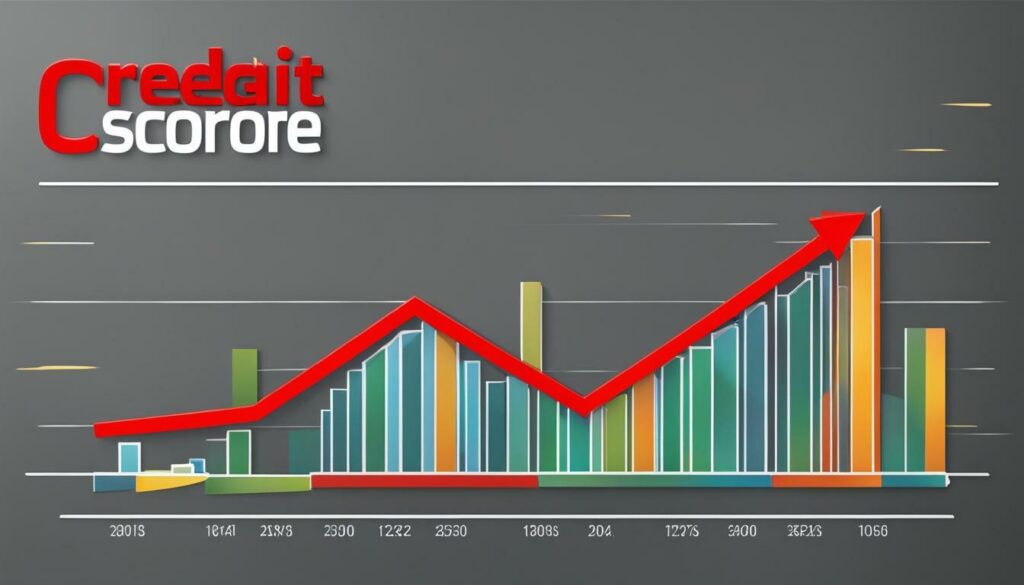Top Tips on Managing Credit Scores for Small Business Owners

Managing credit scores is essential for small business owners who want to achieve financial stability and growth. By following these top tips, you can effectively manage your credit score and increase the chances of success for your business.
Factual data: Managing credit scores for small business owners is crucial for their financial success. Here are some top tips to keep in mind:
- Apply for a Tax ID number through the IRS to kickstart the process of building a traceable credit history.
- Choose the right business structure, such as LLC or Corporation, to make your business eligible for its own credit score.
- Register with commercial credit bureaus like Experian and Dun & Bradstreet to establish a credit rating.
- Accurately document your business finances to provide accurate information to financiers and AI tools that assess credit scores.
- Set up your business to look favorable to lenders by having a professional website, business license, and separate personal and business credit.
- Check your credit score regularly and submit recommendations from vendors to boost your credit score.
- Build a strong relationship with your business banker to gain trust and support in building your business credit.
- Pay your bills yourself for the first few months to establish good relationships with vendors and suppliers.
- Work with vendors that report to business credit bureaus and ask for 30-day terms to build your credit score.
- Create a digital document listing your trade references to provide to future vendors.
- Avoid taking on credit risk you’re not prepared for and pay on time every time to benefit from credit without getting into debt.
- Leverage your personal credit to establish business credit by obtaining a business credit card and paying it off every month.
- Separate your personal and business activity by formalizing your business as a corporation or LLC and set up payment terms with vendors.
- Keep several credit lines active but don’t carry a balance to maintain a good credit score.
- Take advantage of a credit card with good rewards and make payments on time to improve your credit score.
It is important for small business owners to consistently pay their bills on time, have the right credit mix, keep their credit utilization rate low, check their credit reports regularly, avoid debt collection and bankruptcy, and be patient as it takes time to improve credit scores.
Key Takeaways:
- Apply for a Tax ID number to build a traceable credit history.
- Choose the right business structure for eligibility for a business credit score.
- Register with commercial credit bureaus to establish a credit rating.
- Accurately document your business finances for accurate credit score assessment.
- Set up a professional business image to attract lenders.
Building and Establishing Credit for Small Businesses
Building a solid credit foundation for your small business is crucial for its long-term success. Here are some key steps to take when establishing and improving your credit score as an entrepreneur:
- Apply for a Tax ID number: Kickstart the process of building a traceable credit history by applying for a Tax ID number through the IRS.
- Choose the right business structure: Make your business eligible for its own credit score by choosing the right structure, such as LLC or Corporation.
- Register with commercial credit bureaus: Establish a credit rating by registering with commercial credit bureaus like Experian and Dun & Bradstreet.
- Accurately document your business finances: Provide accurate information to financiers and AI tools that assess credit scores by accurately documenting your business finances.
- Set up a professional business image: Look favorable to lenders by having a professional website, business license, and separate personal and business credit.
- Regularly check your credit score: Monitor your credit score regularly and take recommendations from vendors to boost your credit score.
- Build a strong relationship with your business banker: Gain trust and support in building your business credit by building a strong relationship with your business banker.
- Pay your bills yourself: Establish good relationships with vendors and suppliers by paying your bills yourself for the first few months.
- Work with vendors that report to business credit bureaus: Build your credit score by working with vendors that report to business credit bureaus and asking for 30-day terms.
- Create a trade reference document: Create a digital document listing your trade references to provide to future vendors.
- Avoid taking on excessive credit risk: Only take on credit you’re prepared for and pay on time every time to benefit from credit without getting into debt.
- Leverage your personal credit: Establish business credit by obtaining a business credit card and paying it off every month, leveraging your personal credit.
- Separate personal and business activity: Formalize your business as a corporation or LLC and set up payment terms with vendors to separate your personal and business activity.
- Maintain active credit lines: Keep several credit lines active but avoid carrying a balance to maintain a good credit score.
- Take advantage of credit card rewards: Choose a credit card with good rewards and make payments on time to improve your credit score.
Remember, it’s important for small business owners to consistently pay their bills on time, have the right credit mix, keep their credit utilization rate low, check their credit reports regularly, avoid debt collection and bankruptcy, and be patient as it takes time to improve credit scores.
🚨 TUIC Errors + Low Credit Score?
CreditScoreIQ helps you build credit faster by reporting utility bills to all 3 bureaus—while you dispute errors.
Start Building Credit Today →Strategies for Maintaining and Optimizing Small Business Credit Scores
Once you have established your business credit, it is important to implement effective strategies to maintain and optimize your credit score. By following these tips, you can ensure that your small business credit remains strong and favorable to lenders.
1. Accurate Financial Documentation: Properly documenting your business finances is essential for maintaining a good credit score. Provide accurate information to financiers and AI tools that assess credit scores. Keep detailed records of all your financial transactions, including income, expenses, and taxes.
2. Professional Business Image: Setting up a professional business image can significantly impact your credit score. Create a professional website, obtain a business license, and have a separate personal and business credit. This demonstrates to lenders that you are running a legitimate and responsible business.
3. Regular Credit Score Monitoring: Checking your credit score regularly allows you to stay on top of any changes or inaccuracies. Utilize credit monitoring services or obtain your credit reports from the major credit bureaus to keep track of your credit score and take immediate action if needed.
4. Building Relationships with Bankers and Vendors: Establishing strong relationships with your business banker and vendors can be beneficial for your credit score. A trustworthy and reliable reputation can lead to recommendations from vendors, which can significantly boost your credit score.
5. Pay Bills on Time and Establish Trade References: Paying your bills on time for the first few months is crucial for building good relationships with vendors and suppliers. Additionally, work with vendors that report to business credit bureaus and ask for 30-day terms to build your credit score. Create a digital document listing your trade references to provide to future vendors.
6. Manage Credit Risk: It is important to avoid taking on credit risk that you are not prepared for. Only pursue credit opportunities that align with your financial capabilities and pay on time every time to benefit from credit without getting into debt.
7. Leverage Personal Credit: To establish business credit, you can leverage your personal credit by obtaining a business credit card and paying it off every month. This helps demonstrate your creditworthiness and can contribute to building a positive business credit score.
8. Separate Personal and Business Activity: Formalize your business as a corporation or LLC to separate your personal and business activity. This not only protects your personal assets but also allows you to set up payment terms with vendors, further establishing your business credit.
9. Maintain Active Credit Lines: Keep several credit lines active, such as business credit cards or lines of credit, but be cautious not to carry a balance. Utilize credit responsibly and pay off any balances in a timely manner to maintain a good credit score.
10. Take Advantage of Credit Card Rewards: Consider using a credit card with good rewards and make payments on time. Not only can this help improve your credit score, but it also allows you to benefit from rewards or cashback programs offered by the credit card company.
Once you have implemented these strategies, continue to monitor your credit score regularly and make adjustments as needed. It takes time to improve and maintain a good credit score, but with diligence and responsible financial practices, your small business credit score can remain strong and favorable to lenders.

Improving your personal and business credit scores can significantly benefit your small business. Use these best practices to enhance both your personal and business creditworthiness.
- Apply for a Tax ID number through the IRS to kickstart the process of building a traceable credit history.
- Choose the right business structure, such as LLC or Corporation, to make your business eligible for its own credit score.
- Register with commercial credit bureaus like Experian and Dun & Bradstreet to establish a credit rating.
- Accurately document your business finances to provide accurate information to financiers and AI tools that assess credit scores.
- Set up your business to look favorable to lenders by having a professional website, business license, and separate personal and business credit.

Check your credit score regularly and submit recommendations from vendors to boost your credit score.
Building a strong relationship with your business banker is crucial to gain trust and support in building your business credit. Paying your bills yourself for the first few months can establish good relationships with vendors and suppliers. Work with vendors that report to business credit bureaus and ask for 30-day terms to build your credit score. Creating a digital document listing your trade references can be provided to future vendors. Avoid taking on credit risk you’re not prepared for and pay on time every time to benefit from credit without getting into debt. Leverage your personal credit to establish business credit by obtaining a business credit card and paying it off every month. Separate your personal and business activity by formalizing your business as a corporation or LLC and set up payment terms with vendors. Keep several credit lines active but don’t carry a balance to maintain a good credit score. Take advantage of a credit card with good rewards and make payments on time to improve your credit score.
It is important for small business owners to consistently pay their bills on time, have the right credit mix, keep their credit utilization rate low, check their credit reports regularly, avoid debt collection and bankruptcy, and be patient as it takes time to improve credit scores.
| Best Practices for Improving Personal and Business Credit Scores |
|---|
| Apply for a Tax ID number |
| Choose the right business structure |
| Register with commercial credit bureaus |
| Accurately document your business finances |
| Set up your business to look favorable to lenders |
Conclusion
Managing credit scores is a vital aspect of running a successful small business. By following the top tips and strategies provided in this article, you can proactively manage your credit score and build a solid foundation for your business’s financial success.
It is crucial to begin by applying for a Tax ID number through the IRS, which will kickstart the process of building a traceable credit history for your business. Additionally, choosing the right business structure, such as an LLC or Corporation, will make your business eligible for its own credit score.
Registering with commercial credit bureaus like Experian and Dun & Bradstreet is another important step in establishing a credit rating for your business. Accurately documenting your business finances will provide financiers and AI tools with the necessary information to assess your credit score properly.
Setting up your business to look favorable to lenders is essential. This can be achieved by having a professional website, a business license, and separate personal and business credit. Regularly checking your credit score and submitting recommendations from vendors can also help boost your credit score.
Building a strong relationship with your business banker can provide trust and support in building your business credit. Paying your bills yourself for the first few months will establish good relationships with vendors and suppliers. Additionally, working with vendors that report to business credit bureaus and asking for 30-day terms will further enhance your credit score.
Creating a digital document listing your trade references is useful to provide to future vendors. It is important to avoid taking on credit risk that you’re not prepared for and consistently pay on time to benefit from credit without getting into debt. Leveraging your personal credit to establish business credit and separating your personal and business activity are effective strategies.
Keeping several credit lines active but not carrying a balance will maintain a good credit score. Finally, taking advantage of a credit card with good rewards and making payments on time will contribute to improving your credit score.
Remember, it is important for small business owners to consistently pay their bills on time, have the right credit mix, keep their credit utilization rate low, check their credit reports regularly, avoid debt collection and bankruptcy, and be patient as it takes time to improve credit scores.
FAQ
Q: Why is managing credit scores important for small business owners?
A: Managing credit scores is crucial for small business owners as it directly impacts their ability to secure financing, obtain favorable payment terms from vendors, and establish a strong financial reputation.
Q: How can I start building credit for my small business?
A: You can start building credit for your small business by applying for a Tax ID number through the IRS, choosing the right business structure, and registering with commercial credit bureaus like Experian and Dun & Bradstreet.
Q: What steps can I take to maintain and optimize my small business credit scores?
A: To maintain and optimize your small business credit scores, it is important to accurately document your business finances, set up a professional business image, regularly monitor your credit scores, and build strong relationships with bankers and vendors.
Q: How can I improve my personal and business credit scores?
A: You can improve your personal and business credit scores by leveraging your personal credit, separating personal and business activity, maintaining active credit lines, and taking advantage of credit card rewards.
Q: What is the importance of regularly checking credit reports?
A: Regularly checking your credit reports allows you to identify any errors or discrepancies that could negatively impact your credit scores. It also helps you stay informed about your business’s credit standing and take necessary steps to improve it.
Ready to Improve Your Credit?
Disputing TUIC errors is step one. Step two? Boost your score by reporting utility payments with CreditScoreIQ.
Get Started Now (Only $1 Trial) →3-bureau reporting • $1M identity insurance • Dark web monitoring






